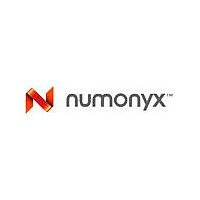M25P20-VMN6T NUMONYX, M25P20-VMN6T Datasheet - Page 7

M25P20-VMN6T
Manufacturer Part Number
M25P20-VMN6T
Description
IC FLASH 2MBIT 50MHZ 8SOIC
Manufacturer
NUMONYX
Series
Forté™r
Datasheet
1.M25P20-VMN6T.pdf
(40 pages)
Specifications of M25P20-VMN6T
Format - Memory
FLASH
Memory Type
FLASH
Memory Size
2M (256K x 8)
Speed
50MHz
Interface
SPI, 3-Wire Serial
Voltage - Supply
2.7 V ~ 3.6 V
Operating Temperature
-40°C ~ 85°C
Package / Case
8-SOIC (3.9mm Width)
Lead Free Status / RoHS Status
Contains lead / RoHS non-compliant
Other names
497-1623-2
Available stocks
Company
Part Number
Manufacturer
Quantity
Price
Company:
Part Number:
M25P20-VMN6TP
Manufacturer:
STM
Quantity:
1 865
Part Number:
M25P20-VMN6TP
Manufacturer:
MICRON/美光
Quantity:
20 000
Company:
Part Number:
M25P20-VMN6TPB
Manufacturer:
MICRON
Quantity:
680
Company:
Part Number:
M25P20-VMN6TPB
Manufacturer:
NUMONYX
Quantity:
3 500
Company:
Part Number:
M25P20-VMN6TPB
Manufacturer:
STMicroelectronics
Quantity:
6 100
Part Number:
M25P20-VMN6TPB
Manufacturer:
MICRON/美光
Quantity:
20 000
Company:
Part Number:
M25P20-VMN6TPBA
Manufacturer:
MICRON
Quantity:
1 001
OPERATING FEATURES
Page Programming
To program one data byte, two instructions are re-
quired: Write Enable (WREN), which is one byte,
and a Page Program (PP) sequence, which con-
sists of four bytes plus data. This is followed by the
internal Program cycle (of duration t
To spread this overhead, the Page Program (PP)
instruction allows up to 256 bytes to be pro-
grammed at a time (changing bits from 1 to 0), pro-
vided that they lie in consecutive addresses on the
same page of memory.
For optimized timings, it is recommended to use
the Page Program (PP) instruction to program all
consecutive targeted Bytes in a single sequence
versus using several Page Program (PP) se-
quences with each containing only a few Bytes
(see
vice Grade 6)
Grade
Sector Erase and Bulk Erase
The Page Program (PP) instruction allows bits to
be reset from 1 to 0. Before this can be applied, the
bytes of memory need to have been erased to all
1s (FFh). This can be achieved either a sector at a
time, using the Sector Erase (SE) instruction, or
throughout the entire memory, using the Bulk
Erase (BE) instruction. This starts an internal
Erase cycle (of duration t
The Erase instruction must be preceded by a Write
Enable (WREN) instruction.
Polling During a Write, Program or Erase Cycle
A further improvement in the time to Write Status
Register (WRSR), Program (PP) or Erase (SE or
BE) can be achieved by not waiting for the worst
case delay (t
Progress (WIP) bit is provided in the Status Regis-
ter so that the application program can monitor its
value, polling it to establish when the previous
Write cycle, Program cycle or Erase cycle is com-
plete.
Active Power, Standby Power and Deep
Power-Down Modes
When Chip Select (S) is Low, the device is select-
ed, and in the Active Power mode.
Page Program
3)).
W
, t
and
PP
, t
(PP),
Instruction Times (Device
SE
SE
, or t
Instruction Times (De-
or t
BE
BE
). The Write In
).
PP
).
When Chip Select (S) is High, the device is dese-
lected, but could remain in the Active Power mode
until all internal cycles have completed (Program,
Erase, Write Status Register). The device then
goes in to the Standby Power mode. The device
consumption drops to I
The Deep Power-down mode is entered when the
specific instruction (the Deep Power-down (DP) in-
struction) is executed. The device consumption
drops further to I
mode until another specific instruction (the Re-
lease from Deep Power-down and Read Electron-
ic Signature (RES) instruction) is executed.
All other instructions are ignored while the device
is in the Deep Power-down mode. This can be
used as an extra software protection mechanism,
when the device is not in active use, to protect the
device from inadvertent Write, Program or Erase
instructions.
Status Register
The Status Register contains a number of status
and control bits, as shown in
read or set (as appropriate) by specific instruc-
tions.
WIP bit. The Write In Progress (WIP) bit indicates
whether the memory is busy with a Write Status
Register, Program or Erase cycle.
WEL bit. The Write Enable Latch (WEL) bit indi-
cates the status of the internal Write Enable Latch.
BP1, BP0 bits. The Block Protect (BP1, BP0) bits
are non-volatile. They define the size of the area to
be software protected against Program and Erase
instructions.
SRWD bit. The Status Register Write Disable
(SRWD) bit is operated in conjunction with the
Write Protect (W) signal. The Status Register
Write Disable (SRWD) bit and Write Protect (W)
signal allow the device to be put in the Hardware
Protected mode. In this mode, the non-volatile bits
of the Status Register (SRWD, BP1, BP0) become
read-only bits.
CC2
. The device remains in this
CC1
.
Table
5., that can be
M25P20
7/40














